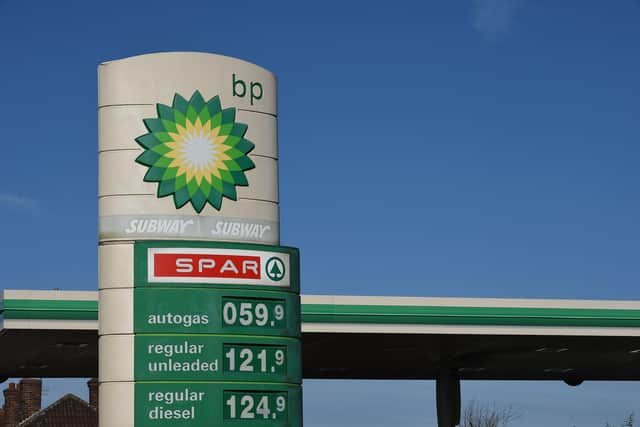Record BP profits could fuel every household in Portsmouth for 112 years figures show as calls for windfall tax continue
and live on Freeview channel 276
BP logged record post-tax profits of $27.7 billion (£23 billion) last year, more than doubling its 2021 earnings. This outstripped the previous record of roughly $26 billion (£21.6 billion) in 2008.
NOW READ: Leigh Park mum eating just two meals a week after British Gas failed to send energy vouchers
Calls on the government to implement a windfall tax are continuing to grow. Department for Business, Energy and Industrial Strategy figures show households in Portsmouth consumed a total of 833 gigawatt-hours (GWh) of gas and 289 GWh of electricity in 2021.
Advertisement
Hide AdAdvertisement
Hide Ad

At the current charging rates capped by the Government with the Energy Price Guarantee, the approximate total cost of fuelling every home in Portsmouth in 2021 was £205 million. BP would be able to pay the bill of every household four an estimated 112 years.
The company’s figures come in the wake of Shell also announcing record profits of almost $40 million (£33.2 million). Labour shadow climate change secretary Ed Miliband said: ‘What is so outrageous is that as fossil fuel companies rake in these enormous sums, Rishi Sunak still refuses to bring in a proper windfall tax that would make them pay their fair share.
SEE ALSO: NatWest branch in Southsea to close with customers advised to use nearest post offices instead
‘Labour would use a proper windfall tax to stop prices going up in April.’ Trades Union Congress general secretary Paul Nowak said: ‘As millions struggle to heat their homes and put food on the table, BP is laughing all the way to the bank.’
Chancellor Jeremy Hunt said during Commons Treasury questions: ‘We will be responsible because we want lower bills, more investment in transition and more money for public services like the police.’